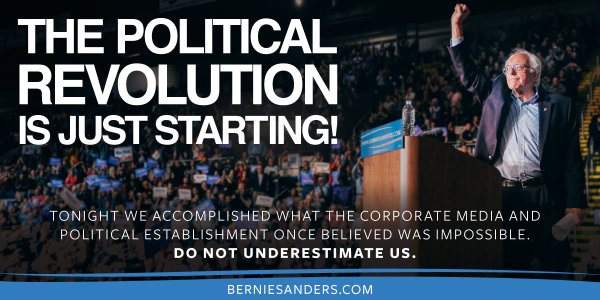
By Robert Reich –
In 2008, when then-Senator Barack Obama promised progressive change if elected President, his primary opponent, then-Senator Hillary Clinton, derided him.
“The skies will open, the light will come down, celestial choirs will be singing and everyone will know we should do the right thing and the world will be perfect,†she said, sarcastically, adding “I have no illusions about how hard this is going to be.
Fast forward eight years. “I wish that we could elect a Democratic president who could wave a magic wand and say, ‘We shall do this, and we shall do that,’†Clinton said recently in response to Bernie Sanders’s proposals. “That ain’t the real world we’re living in.“
So what’s possible in “the real world we’re living in?â€
There are two dominant views about how presidents accomplish fundamental change.
The first might be called the “deal-maker-in-chief,†by which presidents threaten or buy off powerful opponents.
Barack Obama got the Affordable Care Act this way – gaining the support of the pharmaceutical industry, for example, by promising them far more business and guaranteeing that Medicare wouldn’t use its vast bargaining power to negotiate lower drug prices.
But such deals can be expensive to the public (the tab for the pharmaceutical exemption is about $16 billion a year), and they don’t really change the allocation of power. They just allow powerful interests to cash in.
The costs of such deals in “the world we’re living in†are likely to be even higher now. Powerful interests are more powerful than ever thanks to the Supreme Court’s 2010 Citizens United decision opening the floodgates to big money.
Which takes us to the second view about how presidents accomplish big things that powerful interests don’t want: by mobilizing the public to demand them and penalize politicians who don’t heed those demands.
Teddy Roosevelt got a progressive income tax, limits on corporate campaign contributions, regulation of foods and drugs, and the dissolution of giant trusts – not because he was a great dealmaker but because he added fuel to growing public demands for such changes.
It was at a point in American history similar to our own. Giant corporations and a handful of wealthy people dominated American democracy. The lackeys of the “robber barons†literally placed sacks of cash on the desks of pliant legislators.
The American public was angry and frustrated. Roosevelt channeled that anger and frustration into support of initiatives that altered the structure of power in America. He used the office of the president – his “bully pulpit,†as he called it – to galvanize political action.
Could Hillary Clinton do the same? Could Bernie Sanders?
Clinton fashions her prospective presidency as a continuation of Obama’s. Surely Obama understood the importance of mobilizing the public against the moneyed interests. After all, he had once been a community organizer.
After the 2008 election he even turned his election campaign into a new organization called “Organizing for America†(now dubbed “Organizing for Actionâ€), explicitly designed to harness his grassroots support.
So why did Obama end up relying more on deal-making than public mobilization? Because he thought he needed big money for his 2012 campaign.
Despite OFA’s public claims (in mailings, it promised to secure the “future of the progressive movementâ€), it morphed into a top-down campaign organization to raise big money.
In the interim, Citizens United had freed “independent†groups like OFA to raise almost unlimited funds, but retained limits on the size of contributions to formal political parties.
That’s the heart of problem. No candidate or president can mobilize the public against the dominance of the moneyed interests while being dependent on their money. And no candidate or president can hope to break the connection between wealth and power without mobilizing the public.
(A personal note: A few years ago OFA wanted to screen around America the movie Jake Kornbluth and I did about widening inequality, called “Inequality for All†– but only on condition we delete two minutes identifying big Democratic donors. We refused. They wouldn’t show it.)
In short, “the real world we’re living in†right now won’t allow fundamental change of the sort we need. It takes a movement.
Such a movement is at the heart of the Sanders campaign. The passion that’s fueling it isn’t really about Bernie Sanders. Had Elizabeth Warren run, the same passion would be there for her.
It’s about standing up to the moneyed interests and restoring our democracy.
Robert Reich is Chancellor’s Professor of Public Policy at the University of California at Berkeley and Senior Fellow at the Blum Center for Developing Economies. He was Secretary of Labor in the Clinton administration. Republished here under a Creative Commons License from RobertReich.org.














